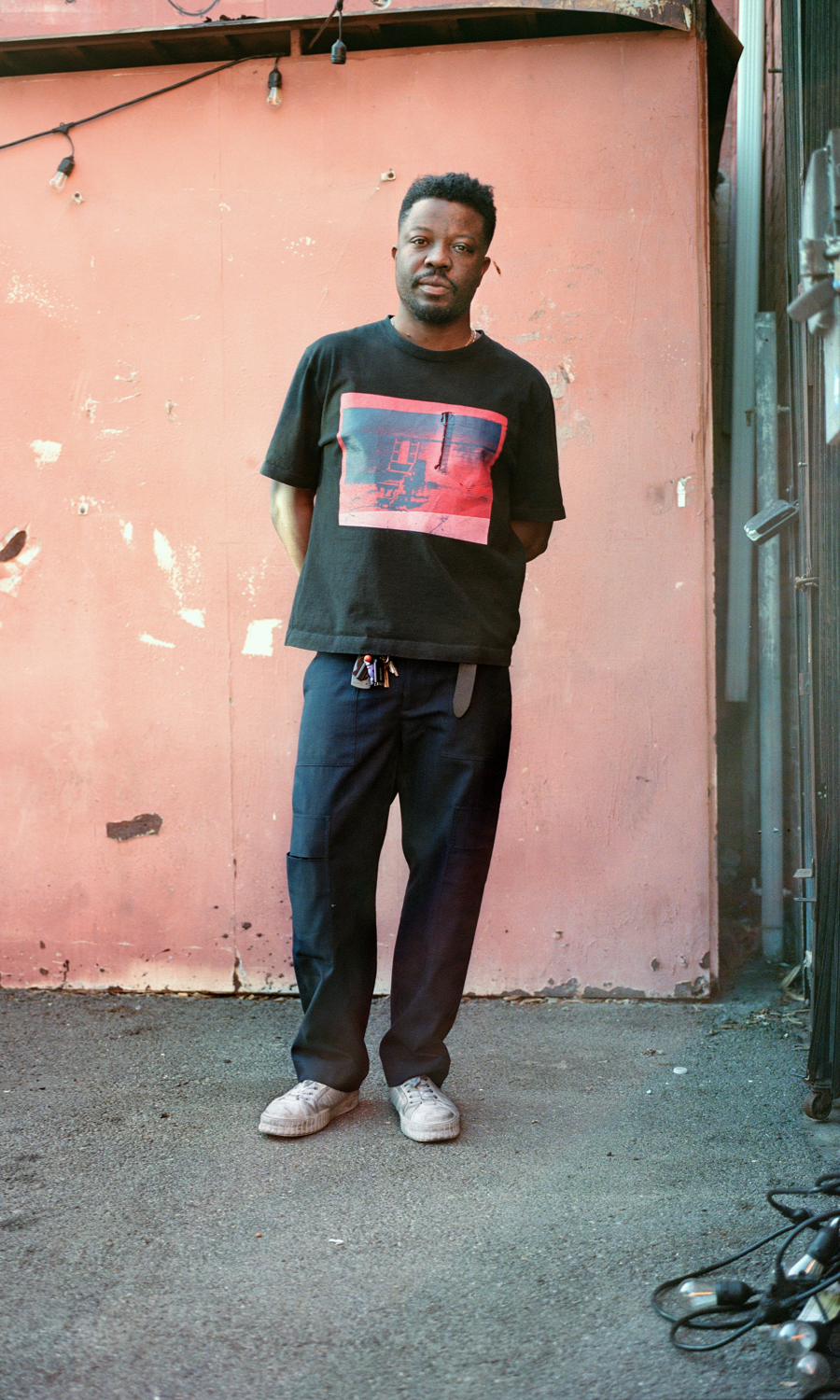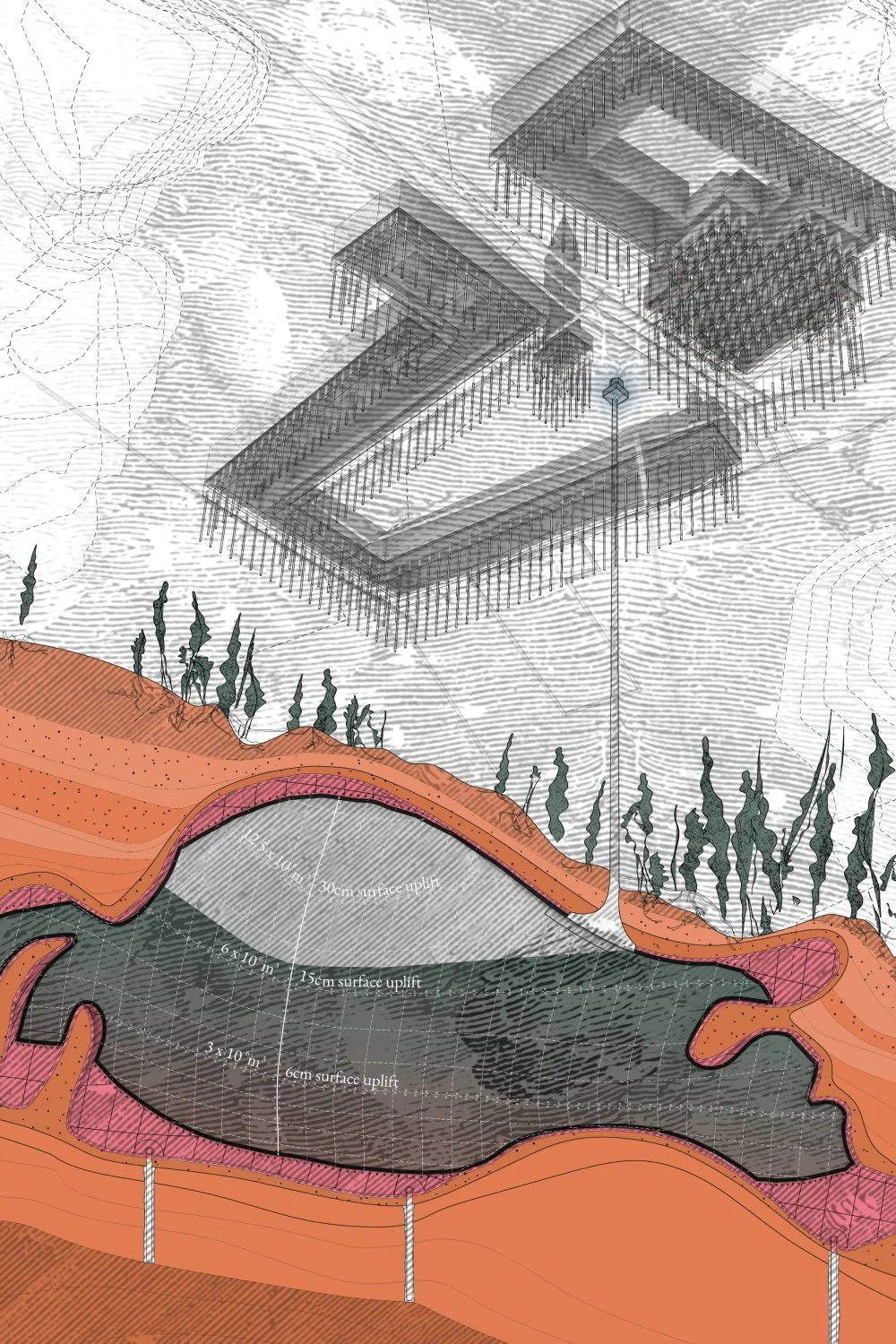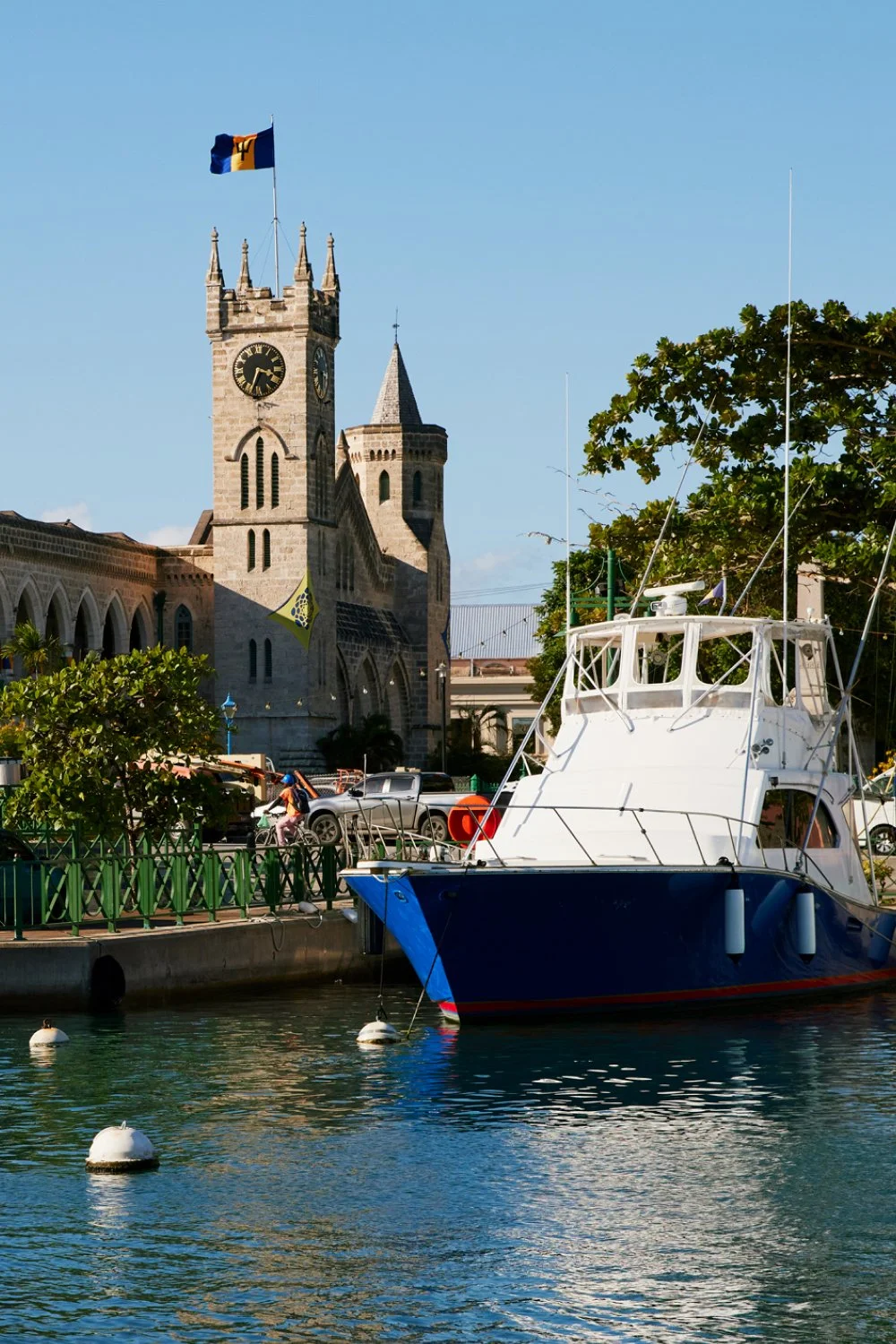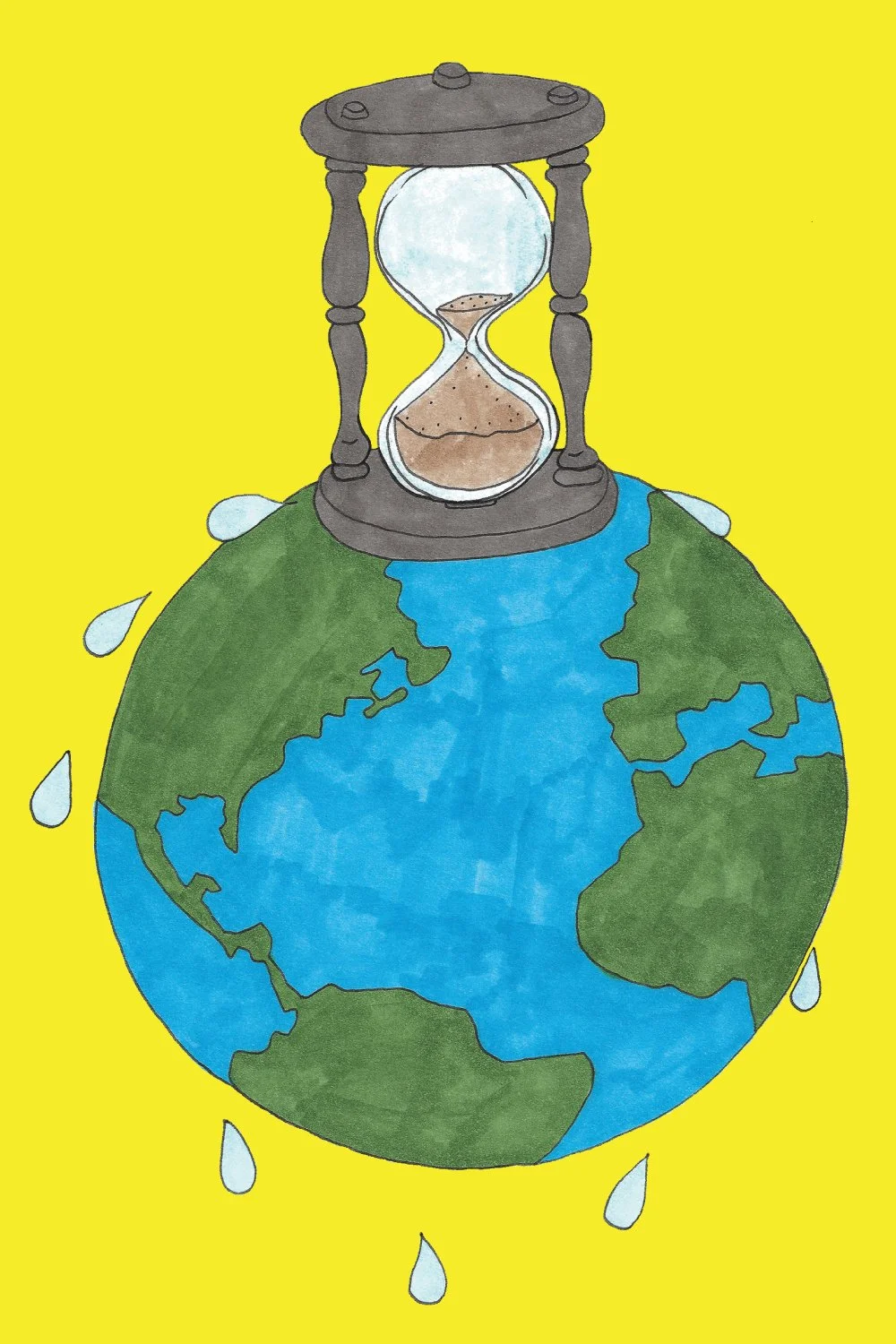Nowhere But Here: Femi Adeyemi on the Possibilities for Placemaking over the Airwaves
Interview by Nu Goteh
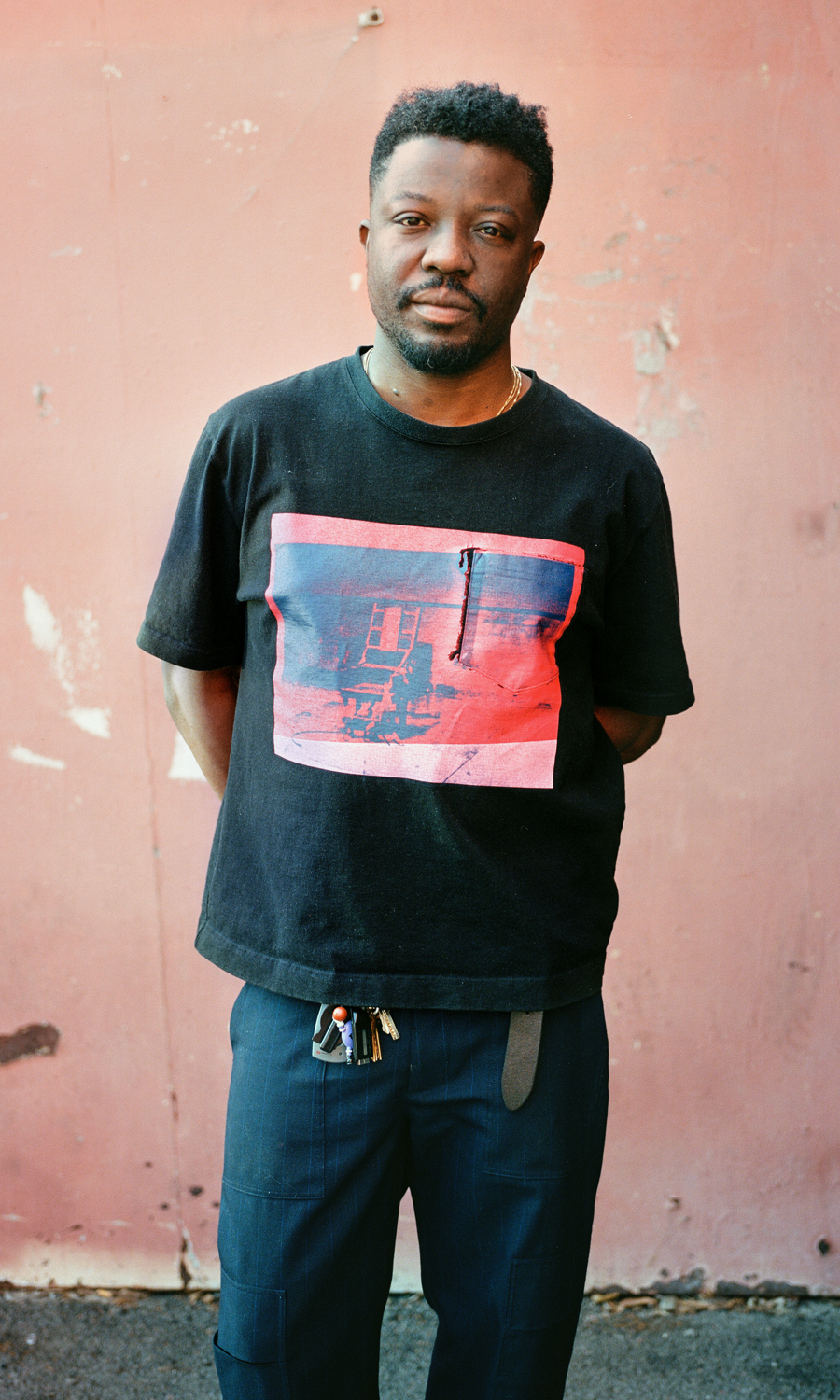
Femi Adeyemi photographed by Sara Pooley in Los Angeles
Nu Goteh: Why did you decide to start a radio station?
Femi Adeyemi: Music has always been a part of my life. This is thanks to my family. I was also lucky to be exposed to a wide range of music because I had access to cable from a young age. I watched a lot of music television, like MTV, and it opened my eyes to a whole world of music that I didn’t know I liked. Growing up in a very diverse city like London, I was also exposed to a wide range of tastes. Radio was something that became relevant to me a little bit later because when I was at university, I couldn’t afford a TV. It was the early days of the internet, so I started streaming radio online, such as American college stations, which were much less formulaic than commercial stations in the UK. Their freeform attitude and less-structured approach to programming really inspired me.
I started to think I might want to do something in music, but I didn’t know what. After I graduated, I had a few jobs—one was managing the online department at American Apparel and the other was doing marketing for a fair trade fashion company, but those didn’t last long. At the time, I was also doing some DJing and connecting with various people who were involved in music in London. I got to a point where I felt like I didn’t have much to lose. Why not just try this radio thing I’ve had at the back of my mind all this time? Then there was the consideration of whether to take the pirate radio route, which would have involved avoiding the police and moving antennas around the city, or to use the internet. But the core question I kept returning to was: Why hasn’t anyone created a place where you can have all sorts of sounds together? NTS came from the desire to have that alternative.
NG: How do you describe your job to your parents?
FA: That’s a very interesting question. I don’t really see it as a job. Sean, my partner who runs NTS with me, is the CEO. I told my mom I’m the founder, but the easiest way to explain it is to say I’m a music programmer—I bring people together through music. In the beginning I used to tell her I was a DJ, and she was like, “A DJ? Is that how you want to live!? Is that what you want to do for the rest of your life?” I’d be like, “Yeah, but I’m a different kind of DJ. I’m not out in the club.” She would still go around telling her sisters, “Femi’s a DJ!” and they would keep bringing it up, telling me that I needed to get a proper job. I think the idea of programming made it easier for her to reckon with.
NG: As you mentioned, pirate radio has a long history, but NTS created a shift within this world that sparked many other community-driven radio stations. What about NTS’s approach do you think made it that catalyst?
FA: Before I started NTS, I looked at a lot of online and pirate radio stations, such as East Village Radio, WFMU, and Dublab. There were plenty of examples to draw from, but I think that prior to NTS, most people who were running online radio stations were doing it from their homes. It was very important to me that NTS have a physical space that is open to anyone. The energy of people coming together there would, I felt, translate to the airwaves. I think that’s what made us stand out, as well as that we didn’t have a “gatekeeper” attitude towards anything we did. If you love music, or you have an interest in music in any regard, come do your thing. Come play whatever you want. We will never tell you what to play. We still operate that way; if you have a show on NTS, you have absolute freedom to do what you want with that time.
We also work with a mixture of people, from more recognized DJs to someone who’s maybe an architect by day and just loves listening to music in their spare time. Bringing these people together in London created a dynamic that resonated with our listeners, because everyone is a bit of a DJ in their own mind. Music is that thing that people are always proud to share.
I think that, taken together, those are the elements that set us apart. We were touching music that no one else was touching. We were taking risks no one else was taking. We were creating juxtapositions that weren’t happening elsewhere. Someone might play a rap show and right after someone else might do a noise show. After all, no one likes just one thing.

The Los Angeles NTS Studio photographed by Sara Pooley, 2022.
NG: This issue of Deem is centered around the idea of place. What does place mean to you, both in regard to NTS and in general? What makes place different from space?
FA: I always say that NTS couldn’t have been created in any other city except London. NTS is based specifically in Gillett Square. Hackney is such a unique part of the city with such a wide range of people. I can’t imagine NTS existing anywhere else. There are a limited number of places in general that have such rich microcosms of different people, interests, and ideas. In Gillett Square, you might have an Ethiopian coffee shop, a Somali bookstore, a Nigerian barber, and a Vietnamese restaurant, all on the same block. This range of tastes and needs is exactly what NTS represents, and that is embodied in this place. I think community is what gives value to a space, and bringing community together is what makes place. Place and space work in sync with each other. I don’t know if that space would’ve been offered to me if I wasn’t already present in the neighborhood and creating my own community there. And then bringing people together to express themselves is what created the value within that space.
“I always say that NTS couldn’t have been created in any other city except London. NTS is based specifically in Gillett Square. Hackney is such a unique part of the city with such a wide range of people. I can’t imagine NTS existing anywhere else. There are a limited number of places in general that have such rich microcosms of different people, interests, and ideas.”

Photo courtesy of Femi Adeyemi / NTS Radio
NG: Though I’ve been to London a couple of times, I’ve never been to Hackney or to Gillett Square, yet I have a vivid idea of what Gillett Square is because of NTS. How do you think being in that specific location started to translate globally, translate virtually, translate to the studio, translate to the vibe?
FA: When we started out, we wanted to visualize what we were doing and leverage that people were interacting with us through the internet. This was when Facebook was still popular and around the beginning of Instagram. We put a camera in the studio. We wanted people to connect with the music, of course, but there also needed to be a story around the music as well—something that could give context to the place itself, why we chose it, what that lesser-known part of the city is about, and why people were coming together there. Our approach was always bigger than just the sound.
That’s also why we’ve never moved from Gillett Square. We’ve had many opportunities to leave, especially as we’ve grown over the years, but there is an energy in that place that makes me feel quite certain, like I said before, that NTS couldn’t have come out of anywhere else, and that there is nowhere else in London like Gillett Square.
In the last two years that our studio was closed due to COVID, that energy has been tangibly lacking. Even though we have grown as a community and a company in that time, something was missing. As soon as the studio reopened and people started coming back to the square, you could feel the energy return. We’ve also realized that even as we establish additional locations, we can never replicate what we have in London, for reasons that are physical as well as cultural. Every place that NTS creates will be different in its own way.

Photo courtesy of Femi Adeyemi / NTS Radio
NG: With that said, are there foundational elements of NTS that you feel you’ve successfully transferred from London to LA, where you now live, even while navigating this change of place?
FA: I think that our sense of community is something that we managed to bring with us. It’s still early days for us in LA. Though we’ve been here for four years, a few issues have prevented us from being able to fully activate the space, starting with the pandemic. LA is a very different kind of place than London. London is a walking city; LA is a driving city. One of the upsides of this location is that the space is significantly bigger than what we have in London. We wanted somewhere people could come and feel that this is their office, their studio, their date spot, whatever they want or need it to be. In London, the studio was more public-facing because it was literally on the street. Passersby would come sit outside and listen to the music. They didn’t even necessarily know what was going on, but they could still join in. It’s hard to recreate that anywhere else, but we are doing our best to cultivate the sense of place it produced.
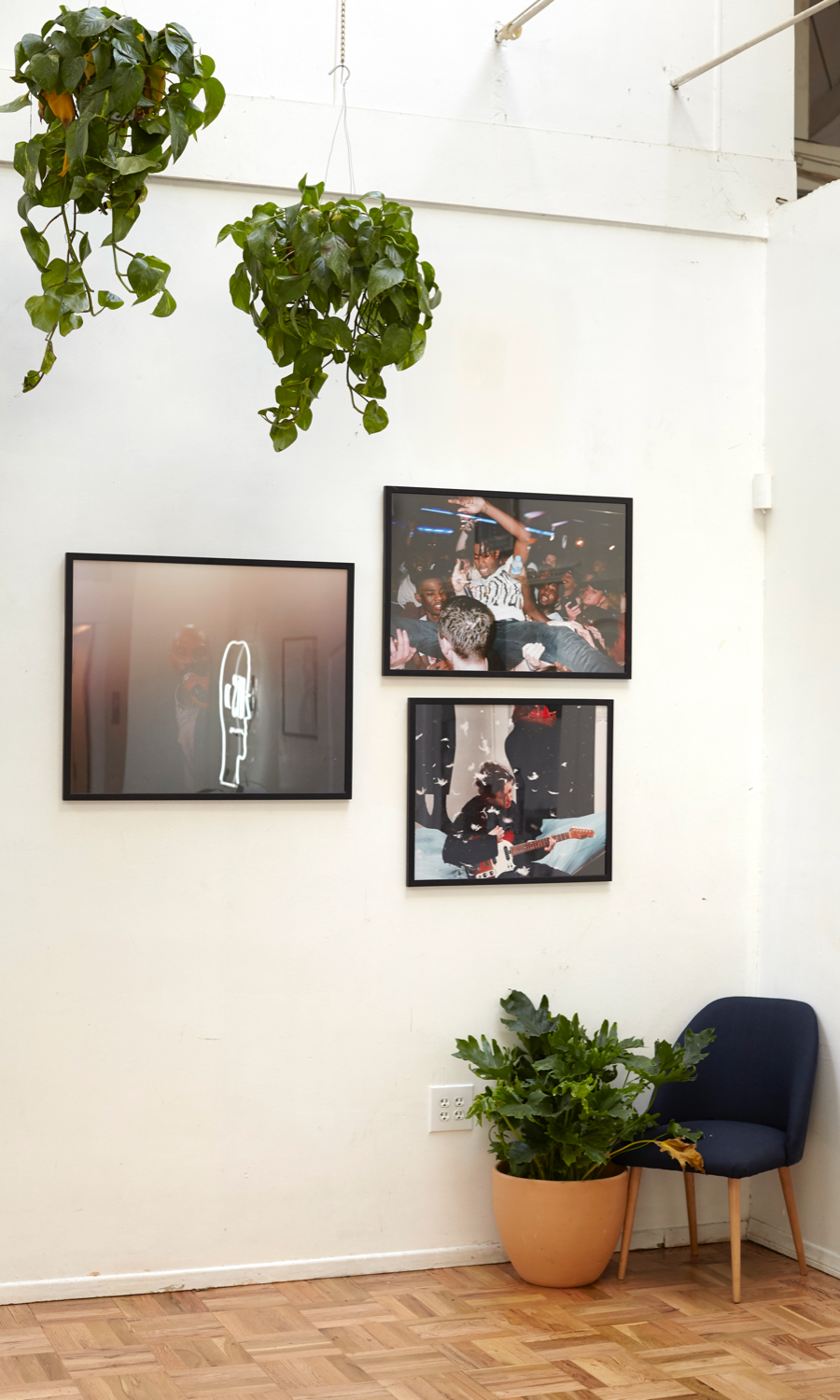
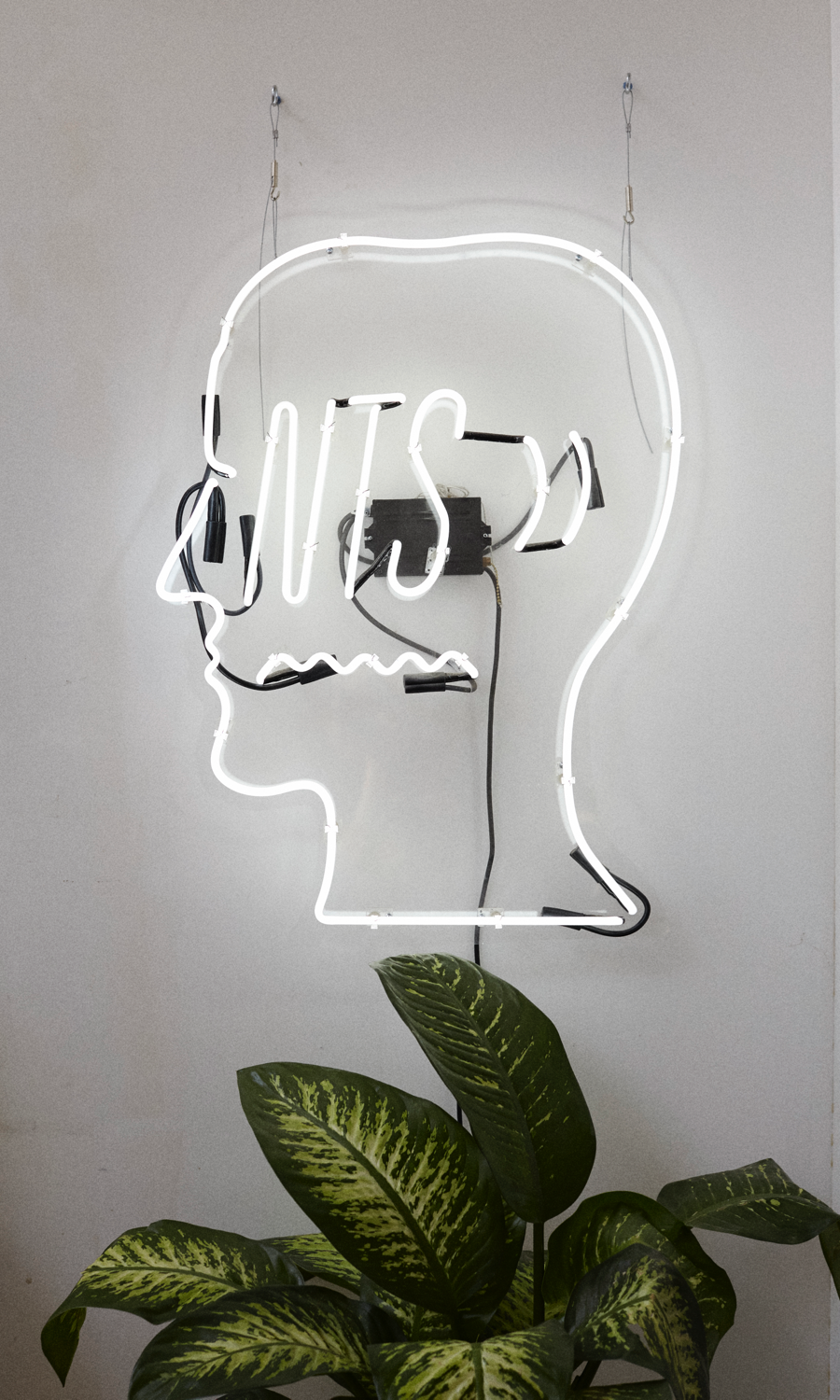
NG: What do you think it is about music that creates such a powerful sense of connection for people?
FA: This is a conversation we have often within NTS, and one that I’m still torn about, because when I was growing up, people tended to identify with one thing—maybe that was rap, or UK garage, or jungle music, or it was East Coast, or it was West Coast. But I think this is less and less true for our listeners, also because of how music is consumed. If you’re truly a music lover, you’re generally interested in digging deeper. When I first got into music, I realized rap music was sampled. That’s how I found out about jazz and, from there, electronic music, new wave, and punk.
Internally, we call ourselves a music discovery platform. We don’t necessarily say it publicly, but that’s how we see ourselves. In ways, technology has enabled a crossover era that is blending genres and also creating more exposure for the underground. But despite this utility, the algorithm serves you what you continue to listen to. Of course, there are elements of exploration and suggestion, but DSPs (Direct Streaming Platforms) and algorithms don’t always get it right. We do use algorithms loosely at NTS, but that methodology is not at the forefront of what we do. An algorithm can’t replace the human emotional reaction to sound, or the human intent in playing music in a way that creates a relatable feeling. I personally think that’s what makes the connection truly satisfying.

Photo courtesy of Femi Adeyemi / NTS Radio
NG: What elements of NTS started to sprout and develop in a way that surprised you?
FA: In the beginning, the vision was to create a collective of people from around the world who come together to play the music they love. The plan was always to start in London and expand from there. Even though I believed this would resonate with people, I didn’t realize how quickly that would happen, or how perfect the timing would be.
These days I kind of hate to use the word “culture,” but I do believe we’ve had a significant cultural impact. We weren’t the first online radio station, but I do think we were the first to show people that a certain kind of DIY production is possible, and that anyone can grab a group of people in their local area and create a community place around a common interest or the desire for a shared experience. That’s something I wasn’t really expecting, especially because NTS has never done much marketing. We’ve always relied more on word of mouth. As we work with so many DJs and curators, the spread of information about us was always organic as well; for that reason the ripple effect felt pure, like everyone who showed up for us was genuinely interested.
“These days I kind of hate to use the word ‘culture,’ but I do believe we’ve had a significant cultural impact. We weren’t the first online radio station, but I do think we were the first to show people that a certain kind of DIY production is possible, and that anyone can grab a group of people in their local area and create a community place around a common interest or the desire for a shared experience.”
NG: This last question is a bit more personal. You’re an elusive man. You don’t give many interviews, and you tend to stay behind the scenes. But lately you have started to step forward a bit more. What prompted that for you?
FA: I’m not very good at talking about myself, nor do I enjoy it. I think what has prompted a shift is the fact that when I meet other Black people, they often tell me that they would never have thought a Black person started NTS. I realized that I wanted to show younger Black creators that there are people like them out there who are doing these things, because I remember when I first started NTS and there weren’t many other Black people in this space who I could reference or talk to.
I think that there are loads of us out there, but are we visible? I understand now that maybe I need to be more visible to help others see that they are not alone. Ultimately, NTS is very much a collection of people—it’s an embodiment—but there are still certain aspects of my culture or my upbringing that I do think come across through the way the company is run. It’s so important to me that Black people see others who look like us in whatever space we are interested in. Young people are moving so fast now, especially young people of color. It’s beautiful.●
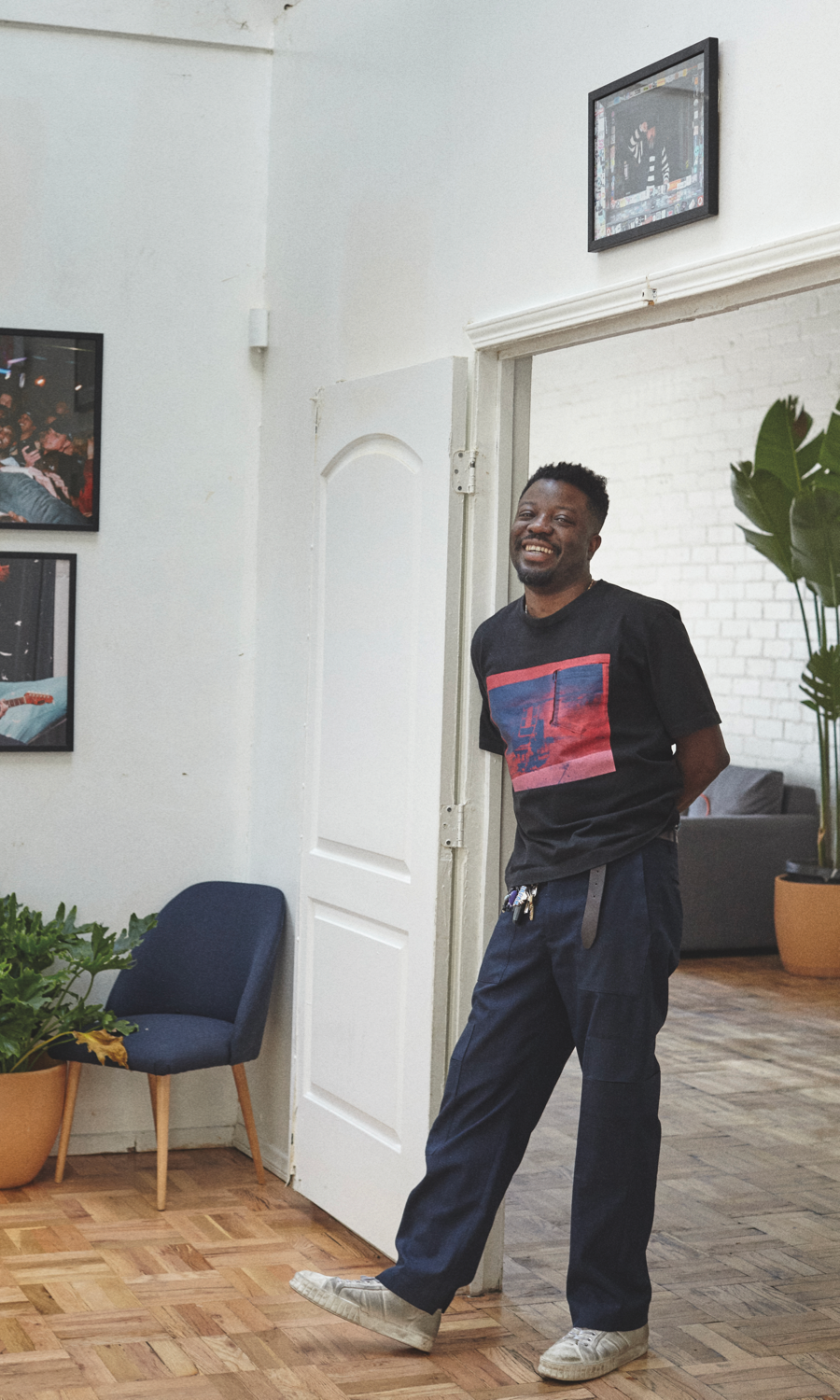
Femi Adeyemi photographed by Sara Pooley in Los Angeles



